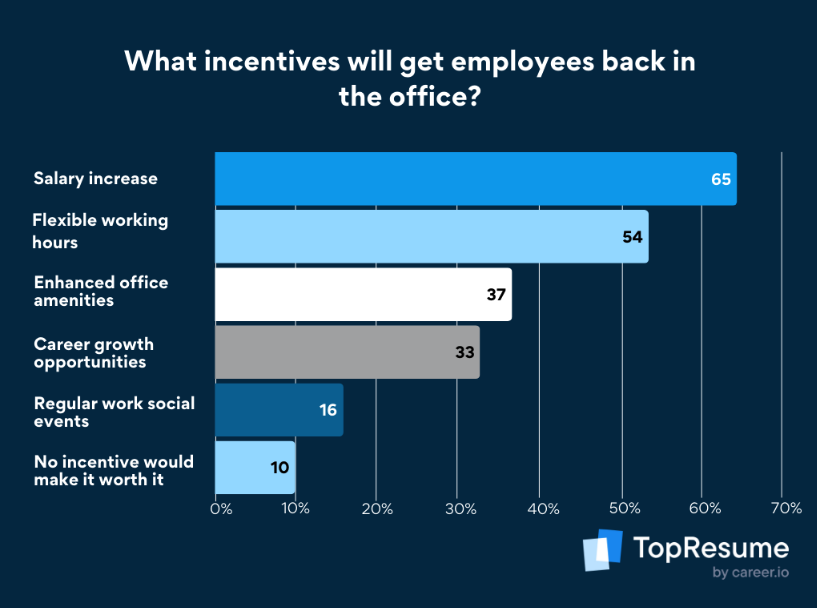One in six workers would quit if forced to return to office
The American workforce is undergoing a shift, with major companies like Amazon, Apple, Goldman Sachs, JP Morgan and Tesla enforcing return-to-office (RTO) mandates, leading to fewer remote work opportunities for employees. Despite the back to workplace push, a survey of 1,000 US workers in January found strong resistance to full-time office returns.
In the last two years, 60% of organizations have required employees to get back into the office, but many workers believe doing so undermines their quality of life — and some say they’ll quit if forced to go back, according to a new study of 1,000 workers by job development and search site Career.io. It found that one in six employees (16%) would quit if forced back to the office, while 40% believe returning would reduce their job satisfaction.
“For these people, working from home provides a quieter and less stressful environment, eliminates commuting costs, and promotes a healthier work-life balance,” the Career.io study said.
The pushback against RTO policies has been varied, with some workers outright quitting, others quiet vacationing and still others coffee badging to make it appear they’ve met their in-office requirements. Millennials, in particular, were most recalcitrant. Career.io’s survey found more than a third of millennials simply plan to disregard enforced RTO regulations.
TopResume
Overall, the survey found that 6.7% of workers plan to ignore the mandates by staying remote or going into the office less often, though 77% said they would comply with RTO policies to avoid consequences. (Despite the risk of losing top talent, few big corporations are offering incentives for employees to RTO. The survey found 65% of employees cited a pay raise as the top incentive, 54% want flexibility in hours to avoid peak commuting, and 10% said no incentive would make office returns worthwhile.)
Over half (54%) of respondents said RTO requirements would negatively affect their work-life balance. In recent years, especially since the COVID-19 pandemic upended office routines in 2020 and 2021, workers have flourished with the advantages of not having to go into their cubicles; employees get to work flexibly and avoid the 43 hours of commuting on average that American office workers had to endure in the last year, according to the study.
“The monster under the bed that is going unaddressed by CEOs is that one-third of respondents fear working from the office would significantly impact their mental health,” the study stated. “American workers are already struggling with record levels of burnout — something which could only worsen with office distractions.”
Despite the commuting and lunch costs that come with RTO, more than a third of respondents believe they spend less money while in the office than at home. Remote workers may spend more on energy and office supplies, but they also contributed far more in online spending when at home.
In 2023, remote workers contributed an extra $375 billion in online spending, according to a Master Economics Institute study.

TopResume
Career.io also analyzed over 6,000 U.S.-based remote job listings on LinkedIn during March, categorizing them by industry (excluding “other”). The analysis ranked industries by the number of remote job applications to identify those offering the most remote positions.
The data showed the tech industry leads in offering employees the opportunity to work fully remote. Nearly 32% of all remote job postings were for tech jobs. Sales and marketing were in second place with 25% of job remote job opportunities. The top five of 12 industries account for about 84% of total remote job listings, the study found.
It’s not just private industry that wants workers back in their chairs. In January, US President Donald J. Trump insisted federal employees return to their offices or face termination. That push has led to the same kind of push-pull between government managers and employees, and has angered federal employees who have been asked to go back to the office, even though office space has been downsized.







